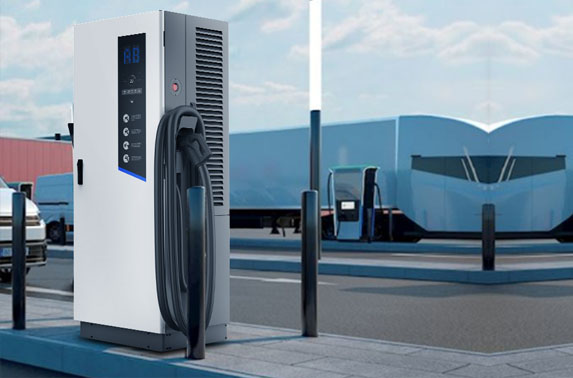
Products
Fast, Reliable, Everywhere

Solutions
Efficient, Innovative EV Charging Solutions.
News
We are committed to the innovation and application of EV charging.
In this article, we will talk about how much to install EV charging at home.
Although you may charge your car with a standard 3-pin socket, most EV owners choose to utilize home charging equipment. Your automobile will be charged at roughly 2.3 kW using a 3-pin connector. This indicates that a car with a 40kWh battery would take 17 hours to completely charge. A 7kW EV charger may shave 11 hours off of that charging period.
On the low end, installing a home charging station will cost roughly $1,000, and on the high end, it will cost over $3,000. Your charges will, of course, vary based on the considerations. With the Smart Splitter, you may avoid the permission, electrical materials, and electrician costs if you already have a 240V outlet. This may save you hundreds, if not thousands, of dollars on a home charging station installation.

When it comes to choosing an electric car charging station for your house, there are a few factors to consider.
Level 2 chargers are available in capacities ranging from 16 to 80 amps. However, your vehicle's charging capacity, or how rapidly it can absorb the charge, limits your speed.
There are two sorts of chargers: plug-in chargers that connect to an outlet and chargers that are hardwired directly into your home's electrical system. Each form has advantages and disadvantages. Plug-in chargers are convenient since they can accompany you on the road, be taken with you when you move, and be unplugged if they break or need to be serviced. A plug-in charger is also easy to upgrade later. The disadvantage is that adding an outlet to your home will almost certainly be more expensive than wiring the charger straight into your panel.
You can't relocate the charger without the assistance of an electrician if it's hardwired. However, if your electrical panel is located in your garage, it will almost likely cost cheaper to install than an outlet. Provided your garage already has a dryer outlet, you might be able to connect straight into it if it has adequate amperage. Because various chargers use different plug types, your unit may or may not fit in your current dryer outlet. Furthermore, the National Electrical Code prohibits input cords that are longer than 12 inches, so your charger should be no more than a foot away from the dryer outlet.
How much to install EV charging at home? Investing in a smart charger is the best option.
These are internet-connected chargers that can interact with both your car and the grid. This allows them to determine the best cost-effective and energy-efficient times to charge your vehicle. As a result, they not only save you money but also help conserve the environment.
The Electric Vehicle Home charge Scheme (EVHS) was created by the government to assist EV drivers with up to 75% (£350) of the expenses of installing a home charger.
You're eligible if you acquired a qualifying electric car or plug-in hybrid car after October 1, 2016, and you fulfill the requirements listed below. The following are some of the conditions:
• You're installing a smart charger
• You have off-street parking (a driveway or garage)
• The installation date isn't more than 4 months before the delivery date, or the date you became the registered driver of the EV
• You're installing an electric charging station and wondering how much to install EV charging at home? Then you are right place.
How much to install EV charging at home? You'll need dedicated off-street parking to acquire a home EV charger. This indicates that you have a garage or driveway where you may park your car away from the street.
Installing a home EV charger will be more difficult if you don't have a driveway or garage. It might result in wires strewn across the sidewalk, which isn't very safe for pedestrians. Consult an installer about your possibilities, and check with your local government about the feasibility of installing EV chargers.
Engineers must adhere to a few rules while installing electric car charging stations. This may have an impact on where you may hang the charger.
Engineers will look at some images of where you wish to put your charger before installing it. They may ask for the images to be emailed to them, or they may come to the site and take them personally as part of a site assessment.
Read more: which chevy spark ev have dc quick charging
To avoid any unpleasant surprises on the day, it's a good idea to provide your installers with as much information as possible ahead of time.
They may do a site survey, which is sending someone to inspect your home before the installation date to ensure everything is in working condition. This will require you (or another adult) to be at home.
Make sure you're ready on the day by cleaning the space where they'll be working. Make certain that the path between the ChargePoint and your electrical supply meter or distribution board is free of obstructions. A wire will be installed here to link the two.
So you've decided to buy an electric vehicle and are now thinking about how you'll charge it. Many electric vehicle owners will be unable to charge their vehicles at home, forcing them to rely on public chargers and even workplace charging. The price varies based on where you reside, whatever charger you choose, and whether the charger is hardwired or portable. The national average price range for a 240-volt outlet, charger, and wall-mounted system is $1,000 to $2,500, with most consumers spending about $1,200.
